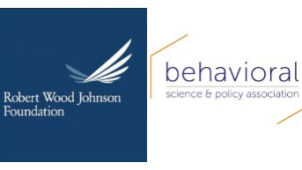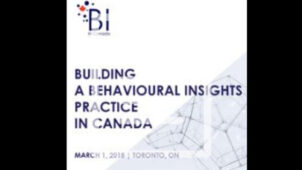In the News
-
Achieving Health Equity in the Social Determinants of Housing and Education – Deadline: May 15th
In recent years there has been a growing recognition that health is inextricably tied to complex social determinants like where individuals live, learn, work, and play. As diverse individuals, communities, organizations, and sectors look to foster improved health and well-being, a vision for a vibrant society where all are enabled to live their healthiest and longest lives possible has emerged. A Special Issue of Behavioral Science & Policy, supported by the Robert Wood Johnson Foundation, will highlight the application of behavioral science approaches and interventions to achieve health equity in the specific social determinants of housing and education. Papers with policy-relevant outcomes are encouraged.
For more information, see https://behavioralpolicy.org/wp-content/uploads/2018/04/RWJFCallforPapers.pdf -
Everything is Timing
In his newest book, When, Daniel Pink sets out to uncover “the scientific secrets of perfect timing.” In this Behavioral Scientist article, we invited him to tell us more about the seven ways his thinking about when changed. Speaking of timing, NPR’s Hidden Brain uses a social science lens to explore why allegations of sexual harassment and assault were taken more seriously in 2017.
-
Health Nudges
An op-ed in the New York Times argues that Republicans need a nudge to lower health care costs now that the individual mandate tax penalties have been repealed. Todd Rogers also wants to remind everyone on twitter that behavioral science is nonpartisan. Also this week in health, a Q&A with Pelle Guldborg Hansen about a series of escalating approaches for changing citizens’ health behaviors.
-
For and Against the Replication Movement
Pardis Sabeti, a Harvard computational geneticist, published an opinion in the Boston Globe urging caution against the recent call for social scientists to focus on replication instead of fundamental questions. Notably, psychologists and science journalists have taken issue with some of Sabeti’s arguments.
-
Fostering Trusted Regulatory Policy & Engaged Patients
Another branch of psychological science can contribute to better regulatory policy, say E. Allan Lind (Duke) and Christiane Arndt (OECD). They write, “citizens are more likely to comply with regulations that they perceive as enacted through a fair process.” Also, over in Healthcare news, an interview with David Asch (Penn) about how behavioral economics and psychology are key to engaging patients to make meaningful changes.
-
The “Reasonable” Way to Respond to Being Sexually Harassed
Roseanna Sommers examines the disconnect between how we think we’d respond to sexual harassment and what we’re likely to do in reality. Also in the Behavioral Scientist this week, “Does praise actually raise children’s self-esteem and motivation?” asks psychologist Eddie Brummelman. “Research shows that it depends on how we phrase our praise.”
-
Happy New Year from the Behavioral Science & Policy Association
-
Join the GSA Office of Evaluation Sciences Fellowship 2018 Cohort
-
Behavioural Insights in Canada Conference
-
How Digital Nudging Will Save Retirement & Teen Lives
-
Congrats to 2017 Losey Research Award Winner Herman Aguinis
-
Bragging Wisely + Bailing Out Of A Bad Plan
Thinking of Submitting a Paper? Ask the Editors!
Want to submit a paper to BSP but not sure whether you have the right angle?
BSP has a new 'ask the editors' feature available for potential authors. Simply click below to send us an email, and we will respond within 72 hours.
Ask the Editors










